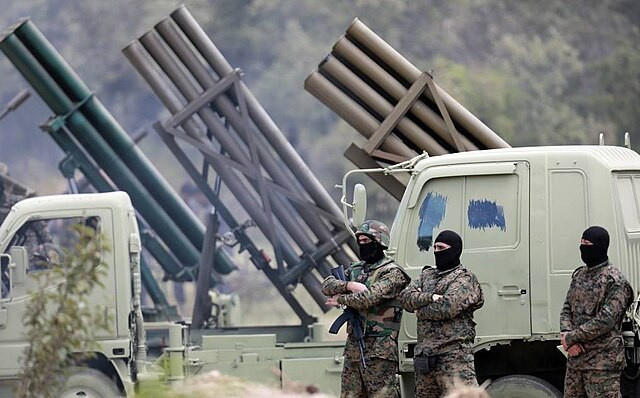Tensions between Israel and Hezbollah have escalated significantly, raising concerns about a potential full-scale war on Israel's northern border. The Israeli military has issued stern warnings that it is prepared to launch a large-scale attack in response to increased cross-border fire from Hezbollah, the Iran-backed Islamist group based in Lebanon.
Israel and Lebanon have technically been at war for decades. The enmity dates back to Israel's 1982 invasion of Lebanon, which was aimed at countering Palestinian militants. Israel occupied southern Lebanon for 22 years before being driven out by Hezbollah, a powerful paramilitary force that emerged during the occupation. Hezbollah, designated as a terrorist organization by much of the Western world, has since been in sporadic conflict with Israel, culminating in a significant war in 2006 that resulted in heavy casualties on both sides.
The current round of hostilities began after Hamas attacked Israel on October 7, killing 1,200 people and abducting 250, according to Israeli authorities. In response, Israel launched a devastating campaign against Hamas in Gaza, resulting in the deaths of over 37,000 Palestinians. Hezbollah's recent aggression is reportedly in support of the Palestinians in Gaza, leading to increased tensions and frequent exchanges of fire across the Lebanon-Israel border.
Hezbollah's military capabilities have grown substantially since the 2006 war. The group now claims to have over 100,000 fighters and possesses an estimated 150,000 rockets. These rockets, if used en masse, could potentially overwhelm Israel's defense systems. Recent clashes have seen Hezbollah deploying advanced weaponry, including the Iranian-made Falaq 2 rockets, which have a longer range and larger warheads compared to their predecessors.
The situation has intensified with Israel and Hezbollah striking deeper into each other's territories. Hezbollah has launched rockets 35 kilometers into Israel, while Israeli forces have targeted areas more than 120 kilometers into Lebanon. This escalation has led to significant casualties, including the death of Israeli soldiers and senior Hezbollah commanders.
The Israeli government, under Prime Minister Benjamin Netanyahu, is under pressure from both opposition and coalition members to address the northern threat. Netanyahu has stated that Israel is prepared for "very intense action" in the north, emphasizing the need to restore security. Meanwhile, Hezbollah's leadership maintains that it does not seek an all-out war but is prepared for one if necessary.
Finance Minister Bezalel Smotrich has indicated that the Israeli Defense Forces (IDF) are not interested in a broader conflict to eliminate Hezbollah but are focused on responding to immediate threats. On the other hand, Hezbollah's second-in-command, Naim Qassem, has asserted that the group will cease its attacks once the conflict in Gaza ends.
Analysts suggest that while neither side may intentionally seek an all-out war, the ongoing escalation could inadvertently trigger one. The intensity of the conflict and the deployment of more sophisticated weaponry increase the likelihood of miscalculations leading to broader hostilities.
The conflict has already resulted in significant displacement, with over 53,000 Israelis and 94,000 Lebanese forced to leave their homes. Both sides have voiced aggressive rhetoric, with Israeli far-right National Security Minister Itamar Ben Gvir calling for the destruction of Hezbollah strongholds.
The international community, particularly the United States, has expressed concerns over the potential for the conflict to spiral out of control. The Biden administration is engaged in diplomatic efforts to prevent further escalation. State Department spokesperson Matthew Miller emphasized the US's "incredibly concerned" stance and the ongoing diplomatic conversations aimed at de-escalation.




